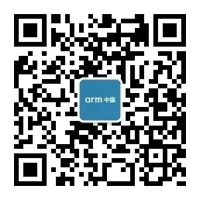来源:内容来自半导体行业观察综合。
昨夜晚间,美国商务部发表新的公告,进一步阻碍华为获得芯片技术。
公告指出,商务部工业与安全局(BIS)今天进一步限制了华为技术有限公司(Huawei Technologies)及其在实体名单上的非美国关联公司对使用美国技术和软件在国内外生产的产品的访问权限。
此外,BIS在实体清单中又增加了38个华为分支机构,对所有受出口管理条例(EAR)约束的项目都规定了许可证要求,并修改了四个现有的华为实体列表条目。国际清算银行还对涉及实体清单上的当事方(例如华为(或其他实体清单实体)充当购买方,中间用户或最终用户)的涉及商务出口管制管辖范围内的项目的任何交易施加许可证要求。这些措施立即生效,这阻止了华为规避美国限制而从其他厂商处获得使用美国技术开发芯片的可能 。
2020年5月,BIS修订了长期存在的外国直接生产(FDP)规则,以华为收购半导体(某些美国软件和技术的直接产品)为目标。今天的修正案通过将控制应用于交易来进一步完善了FDP规则:
1.美国软件或技术是外国生产商品的基础,该外国生产商品将被并入或将用于“生产”或“开发”中实体清单上任何华为实体生产,购买或订购的任何“零件”,“组件”或“设备”;
2.如果实体清单中的任何华为实体是该交易的当事方,例如“购买者”,“中间收货人”,“最终收货人”或“最终用户”。
该修正案进一步限制了华为获得与美国芯片相同程度的,由美国软件或技术开发或生产的国外制造芯片。
商务部长威尔伯·罗斯(Wilbur Ross)表示:“华为及其外国分支机构已经加大了努力,以获取使用美国软件和技术开发或生产的先进半导体。” “由于我们限制了其使用美国技术的机会,因此华为及其关联公司已通过第三方合作,以破坏美国国家安全和外交政策利益的方式利用美国技术。这种多管齐下的行动表明了我们对阻止华为这样做的持续承诺。”
以下21个国家/地区中的38个新的华为分支机构被添加到了实体列表中,因为它们冒着代表华为行事的巨大风险,有违美国的国家安全或外交政策利益。有合理的理由认为,否则华为将寻求使用它们来规避实体名单所施加的限制。
Huawei Cloud Computing Technology;
Huawei Cloud Beijing;
Huawei Cloud Dalian;
Huawei Cloud Guangzhou;
Huawei Cloud Guiyang;
Huawei Cloud Hong Kong;
Huawei Cloud Shanghai;
Huawei Cloud Shenzhen;
Huawei OpenLab Suzhou;
Wulanchabu Huawei Cloud Computing Technology;
Huawei Cloud Argentina;
Huawei Cloud Brazil;
Huawei Cloud Chile;
Huawei OpenLab Cairo;
Huawei Cloud France;
Huawei OpenLab Paris;
Huawei Cloud Berlin;
Huawei OpenLab Munich;
Huawei Technologies Dusseldorf GmbH;
Huawei OpenLab Delhi; Toga Networks;
Huawei Cloud Mexico;
Huawei OpenLab Mexico City;
Huawei Technologies Morocco;
Huawei Cloud Netherlands;
Huawei Cloud Peru; Huawei Cloud Russia;
Huawei OpenLab Moscow;
Huawei Cloud Singapore;
Huawei OpenLab Singapore;
Huawei Cloud South Africa;
Huawei OpenLab Johannesburg;
Huawei Cloud Switzerland;
Huawei Cloud Thailand;
Huawei OpenLab Bangkok;
Huawei OpenLab Istanbul;
Huawei OpenLab Dubai;
Huawei Technologies R&D UK
在并发规则中,当实体列表中的当事方充当EAR交易的购买者,中间收货人,最终收货人或最终用户时,BIS修订了实体列表以要求许可证。当实体清单上的任何华为实体是交易的当事方(例如通过充当买方,中间收货人,最终收货人或最终用户)时,这与FDP修订版中施加的其他限制相一致。
针对这个公告,美国半导体行业联盟表示, 我们仍在审查该规则,但是对商业芯片销售的这些广泛限制将给美国半导体行业带来重大破坏。对于政府突然的转变,我们感到惊讶和担忧。我们重申我们的观点,向中国销售不敏感的商业产品将推动美国半导体研究和创新,这对美国的经济实力和国家安全至关重要。
非美国芯片供应商将不能供货华为?
针对这个新闻,日经评论道,这限制了中国科技巨头从非美国供应商那里购买标准化芯片和其他电子元器件的能力。他们进一步指出,该规定将立即生效,也进一步限制关键的非美国华为供应商向中国最大的科技公司出售关键半导体。
移动芯片开发商联发科,图像传感器供应商索尼,传感器供应商意法半导体以及主要的存储器芯片制造商三星电子,SK Hynix,Kioxia,Nanya Tech以及许多亚洲,欧洲和国内的中国芯片开发商可能都必须遵守相关规则,法律专家和市场观察家表示,因为这些芯片开发涉及美国软件和技术。
美国律师事务所奥里克(Orrick)的执行合伙人哈里·克拉克(Harry Clark)告诉日经新闻,新规定主要针对向指定的华为实体供应外国制造的芯片,“但这些规定可适用于半导体以外的产品。”
此外,根据商务部的声明,只要华为及其关联公司在涉及将美国技术出口,再出口或转让给非指定公司的交易中发挥一定作用,就需要获得许可证。“即使一家公司拥有许可以使其能够从事2020年5月规则所涵盖的活动,但如果其提议从事一项新的活动所涵盖的活动,则仍需要获得其他许可或经修改的许可。”克拉克说。
一位了解此事的供应链高管告诉日经新闻:“在五月份的裁决之后,华为已经测试了各种不同的移动芯片平台,包括联发科和高通的平台。” “它不想放弃来之不易的智能手机业务。”
同时,华为还能够从非美国公司那里购买产品,例如索尼的图像传感器,夏普的驱动器芯片,三星和SK海力士的存储芯片,因为这些不是中国科技公司的定制芯片。
但是随着周一禁令的发布,这个限制范围现在扩大到涉及美国软件或技术的任何芯片,无论是定制半导体还是标准化半导体,预计最新禁令将再次扰乱供应链。几乎世界上所有关键的芯片开发商都需要美国芯片设计工具来设计芯片,以及美国许多其他公司的芯片制造工具来制造这些半导体。新限制的范围可能会扩展到其他重要的电子零件,例如显示面板,因为世界上大多数显示器仍需要美国材料供应商(例如Corning,3M以及设备制造商Applied Materials)作为基本工具。
资深贸易和出口控制法律律师,律师事务所Akin Gump的合伙人Kavin Wolf对《日经新闻》表示:“如果华为公司以任何方式参与进来,世界上任何地方的任何外国制造的半导体现在都必须遵守美国的许可要求。直接或间接地在交易中。”
强生投资(J&J Investment)首席投资官,瑞银(UBS)资深技术分析师郑宗智(Jonah Cheng)告诉日经新闻:“华为已经建立了短期所需的库存,因此最新的禁令不会对这家中国公司产生直接影响。”
附:美国商务部公告原文
The Bureau of Industry and Security (BIS) in the Department of Commerce (Commerce) today further restricted access by Huawei Technologies (Huawei) and its non-U.S. affiliates on the Entity List to items produced domestically and abroad from U.S. technology and software. In addition, BIS added another 38 Huawei affiliates to the Entity List, which imposes a license requirement for all items subject to the Export Administration Regulations (EAR) and modified four existing Huawei Entity List entries. BIS also imposed license requirements on any transaction involving items subject to Commerce export control jurisdiction where a party on the Entity List is involved, such as when Huawei (or other Entity List entities) acts as a purchaser, intermediate, or end user. These actions, effective immediately, prevent Huawei’s attempts to circumvent U.S. export controls to obtain electronic components developed or produced using U.S. technology.
In May 2020, BIS amended the longstanding foreign-produced direct product (FDP) rule to target Huawei’s acquisition of semiconductors that are the direct product of certain U.S. software and technology. Today’s amendment further refines the FDP rule by applying the control to transactions: 1) where U.S. software or technology is the basis for a foreign-produced item that will be incorporated into, or will be used in the “production” or “development” of any “part,” “component,” or “equipment” produced, purchased, or ordered by any Huawei entity on the Entity List; or 2) when any Huawei entity on the Entity List is a party to such a transaction, such as a “purchaser,” “intermediate consignee,” “ultimate consignee,” or “end-user.”
This amendment further restricts Huawei from obtaining foreign made chips developed or produced from U.S. software or technology to the same degree as comparable U.S. chips.
“Huawei and its foreign affiliates have extended their efforts to obtain advanced semiconductors developed or produced from U.S. software and technology。” said Commerce Secretary Wilbur Ross. “As we have restricted its access to U.S. technology, Huawei and its affiliates have worked through third parties to harness U.S. technology in a manner that undermines U.S. national security and foreign policy interests. This multi-pronged action demonstrates our continuing commitment to impede Huawei’s ability to do so.”
The following 38 new Huawei affiliates across 21 countries were added to the Entity List because they present a significant risk of acting on Huawei’s behalf contrary to the national security or foreign policy interests of the United States. There is reasonable cause to believe that Huawei otherwise would seek to use them to evade the restrictions imposed by the Entity List.
Huawei Cloud Computing Technology; Huawei Cloud Beijing; Huawei Cloud Dalian; Huawei Cloud Guangzhou; Huawei Cloud Guiyang; Huawei Cloud Hong Kong; Huawei Cloud Shanghai; Huawei Cloud Shenzhen; Huawei OpenLab Suzhou; Wulanchabu Huawei Cloud Computing Technology; Huawei Cloud Argentina; Huawei Cloud Brazil; Huawei Cloud Chile; Huawei OpenLab Cairo; Huawei Cloud France; Huawei OpenLab Paris; Huawei Cloud Berlin; Huawei OpenLab Munich; Huawei Technologies Dusseldorf GmbH; Huawei OpenLab Delhi; Toga Networks; Huawei Cloud Mexico; Huawei OpenLab Mexico City; Huawei Technologies Morocco; Huawei Cloud Netherlands; Huawei Cloud Peru; Huawei Cloud Russia; Huawei OpenLab Moscow; Huawei Cloud Singapore; Huawei OpenLab Singapore; Huawei Cloud South Africa; Huawei OpenLab Johannesburg; Huawei Cloud Switzerland; Huawei Cloud Thailand; Huawei OpenLab Bangkok; Huawei OpenLab Istanbul; Huawei OpenLab Dubai; and Huawei Technologies R&D UK
The Temporary General License (TGL) has now expired. This rule further protects U.S. national security and foreign policy interests by making a limited permanent authorization for the Huawei entities on the Entity List. This limited authorization is for the sole purpose of providing ongoing security research critical to maintaining the integrity and reliability of existing and currently “fully operational networks” and equipment.
In a concurrent rule, BIS revised the Entity List to require a license when a party on the Entity List acts as a purchaser, intermediate consignee, ultimate consignee, or end user to an EAR transaction. This aligns with the additional restrictions imposed in the revisions to the FDP, when any of the Huawei entities on the Entity List are a party to the transaction, such as by acting as purchaser, intermediate consignee, ultimate consignee, or end user.


